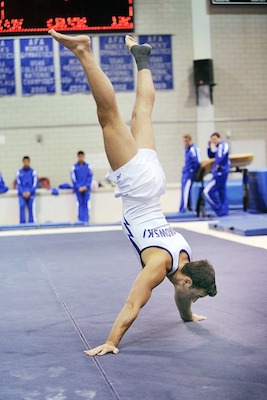Go Paleo, do Crossfit or hit the weights.
Eat organic veggies and clean meat, don’t miss practice, get rest, then run it back again. This is a popular formula for today’s athletes. But staying healthy and rising to the top demands more depth than that. Here are 5 Innovative Ideas for Peak Performance and Superior Athletic Function.
The things no one else is doing, yet, that will not only make you stronger, but deepen your athletic ability, and keep you in the game longer.
#5 Strengthen Your Weaknesses
The best exercise is the one you’re not doing (check out this link).
If your strength is lifting weights that’s a type of comfort zone. Greatness happens outside of your comfort zone. If you’re lacking in cardio, add that into your training, you get the mindset. Strengthening your weaknesses is easy in theory but at the end of the day only the dedicated play in this arena. If you want to level up, work your weaknesses!
#4 Nutrition
I’m not a nutrition expert but I do have a theory. It’s called the Non-Stick Diet. Here are 3 main principles (I’ll write more in a focused article later).
-
Go light on foods that get “stuck” in your gut.
-
Go to sleep hungry.
#3 Recovery and Regeneration
R&R could be a long list of things like Infrared Saunas, Ice, Cold therapy (like Cryo, ice baths) and Heat therapy. Or pressure instruments, massage, acupuncture, yoga, pilates, sleep, nutrition, meditation, visualization, etc.
For now here’s my #1 suggestion – study sleep and get great at it.
Become a sleep champ with the ferocity of becoming a state champ. Here’s a great pdf on sleep http://www.swimsask.ca/pdf/Sleep-and-Recovery.pdf.
In a previous blog titled 3 Things to Know to Out Perform Your Competition, I discussed a few points on sleep, be sure to refer back to that.
How much sleep you get vs. how much sleep you need has an impact.
“A recent study of intercollegiate athletes by Mah (2011) at Stanford University found that increasing the nightly sleep period of 18-20 year old varsity basketball players to at least 10 hours, for a duration of 5-7 weeks led to faster sprint times, increased accuracy, and improved overall ratings of physical and mental well-being during practices and games.”
Pay attention to your sleep quality.
Good quality sleep is refreshing and restorative. There are many factors to this from the amount of light in the room to our screen time and how much we eat before bed,. What time we wake, if we snore or have sleep apnea, to emotional drain.
Like I always say, don’t sleep on sleep science. Of all my years in the health field, “sleep” is the most holistic subject I’ve ever studied.
#2 Bio-Mechanics
A race car driver doesn’t necessarily know how to fix it, but he is interested in how his cars work. And that translates into better driving. The mechanical details aren’t what you as an athlete need to know. But you should know about your body’s unique specifications and qualities.
Race car drivers learn about the weight, engine size, handling capabilities, suspension, horsepower, and torque of their car so they can manage its weaknesses and capitalize on it’s strengths. They then can run the race that’s designed for the specific car.
This is akin to playing the right field position. As an athlete knowing your body should be paramount to using it. Nearly all athletes use their bodies before they learn about them, that’s backwards. Building on bad habits and changing them mid-season or worse – after years of training, is caveman operations. Don’t wait to get hurt before upping your interest in biomechanics.
#1 Variability
Break the mold. Do what everyone else is doing, then change up.
Statistics say that if you want to avoid injuries and sport-related pains, put some variety into your workouts. Click this link.
Diversifying your training will not only improve your athletic abilities it will increase your mental, emotional, and physiological range of performance.
A huge benefit of adaptability is dexterity. It’s impact is resilience, adaptability, body/environmental awareness, and the king of prevention – changeability.
Extend this principle from exercise into movement, diet, mental/emotional habits, movement/stretching.
Essentially, become a more rounded athlete without the over-expectation of needing to become great in the other areas.
Look at variability as a reset. A new challenge. An exercise in fluidity, and durability. Obviously be careful not to get injured, but with the greater skill set you’re developing with just this single principle, you’re now less prone because you’ve increased somatic intelligence and depth to your awareness skill set.
Do what everyone else is doing, then dig just a little deeper!
Develop your best you. Perspective is the game changer.For more info about how I help athletes visit my website www.medicinevolution.com

